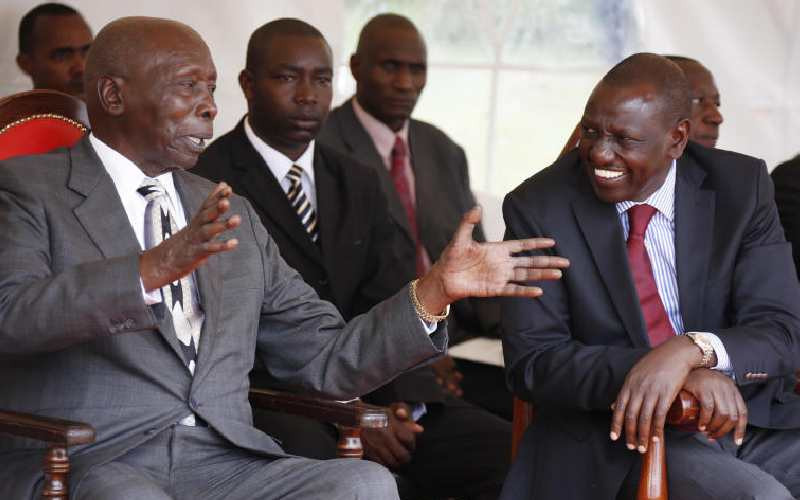×
The Standard e-Paper
Smart Minds Choose Us

Daniel Arap Moi with President William Ruto during a past event at Mother of Apostles' seminary in Eldoret. [Peter Ochieng, Standard]
Silence descended upon the group. The journalists looked at me in bewilderment. Some shook their heads in disbelief. Then one stood up, threw his hands in the air and said: "Mwalimu, I am a Kalenjin and I swear in the name of God that William Ruto will never become President of Kenya."